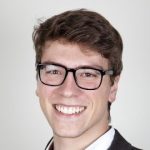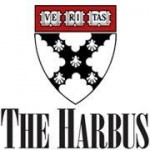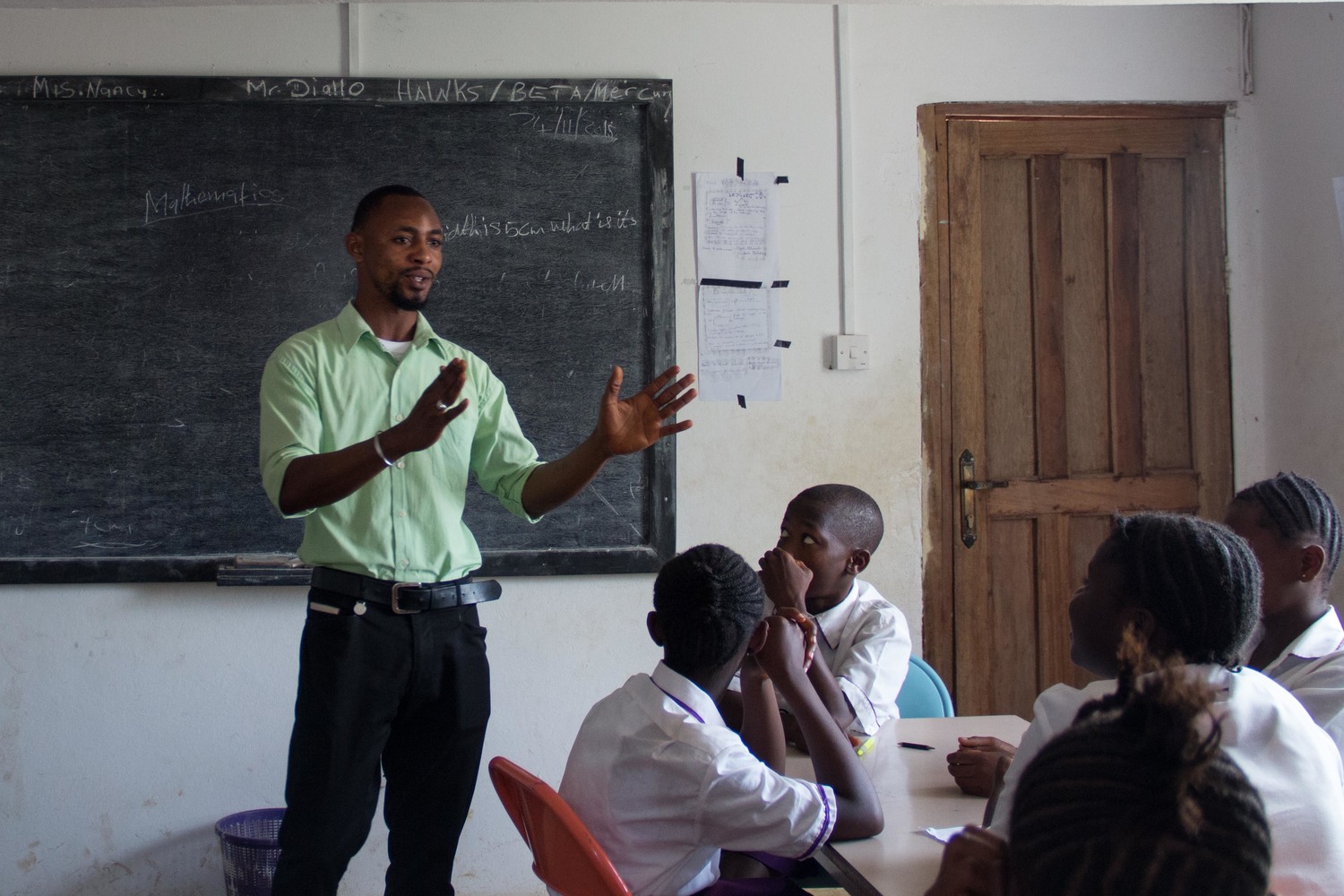A Lesson in Low Cost Education from Sierra Leone

Mohammed Kamara raises his hand as high as he can, eager to catch the teacher’s gaze and, maybe, get called. If he answers this question correctly he may help the boy’s team win the “boys vs. girls” math challenge for the second day in a row. Mohammed is one of the four hundred students wearing the purple uniform of Rising Academy, a low-cost private school network in Sierra Leone.
Sierra Leone, or “Salone” as natives call it, is a small country of 7 million people in West Africa. It is by all measures a poor and underdeveloped country, scarred by decades of a one-party rule, years of civil war and a recent outbreak of Ebola. The country still carries its post-conflict attributes of high youth unemployment, corruption and weak national cohesion. Its Human Development Index, a composite measure of health, education and wealth of a country, is behind all but seven other nations in the world.
Around 1,300 schools were destroyed during the Civil War that lasted from 1991 to 2002. As a result, two thirds of children were out of school in at the end of the war. With an ineffective and corrupt government, the country has failed to build enough schools and train enough teachers to keep up with its growing population – even today, the government struggles to reach the unimpressive target of 49 students per classroom. Moreover, corruption is ingrained and rampant. Since 2009, Sierra Leone has removed six thousand fake teachers off its payroll by simply checking IDs before paying wages. Many government schools charge students to attend classes, plus extra “charges” for uniforms, notebooks, and even exam corrections. Needless to say, teachers and principals often keep a large portion of those charges to themselves.
Strikes and absenteeism plague state schools as well. A recent World Bank report found that teachers in state-run primary schools in some African countries were absent 15-25% of the time. Unsurprisingly, very few students finish junior secondary school with appropriate numeracy and literacy skills.
Rising Academies was created by a group of Canadian and British entrepreneurs to try to find a solution this problem (full disclosure: I spent my summer working for Rising and absolutely loved it). Its model is based on few simple pillars: teach strong values, select and train teachers carefully, make the student the protagonist of the classroom, develop well-crafted and engaging class plans and create a feedback culture. It charges a flat fee, with no extra charges, of 25,000 Leones (something like US$3.5) per week, with a possibility of a scholarship for students that cannot afford this rate. The wage bill is kept low by paying teachers the average salary of state schools – but with the benefit of guaranteeing on-time payment which is already a huge competitive advantage.
Low-cost private schools have long been criticized for their results (or lack thereof). There is no research that shows an unequivocal advantage of private-school achievement for every group of private school students in every subject, across all contexts. Many times, all advantages that do exist tend to disappear when background characteristics are controlled for. Most studies show low overall attainment, both in public and private schools. Distrust of low-cost private schools is compounded by the fact that some large players (like Bridge International Academies, a huge player with more than 400 schools only in Kenya) refuse to take part in randomized controlled trials and other independent studies. Rising is trying to dispel such criticisms by inviting Oxford University to evaluate the academic results of the school in comparison to similar schools with similar students. It is an important step towards a culture of accountability and impact-measurement in a country with so little to show for results in education.
A friend once told me that “principles move around, but context stays where it belongs”. It would be fascinating to learn whether the low-cost private school model would work in other settings, for instance my home-country Brazil, a middle income nation with severe problems in access to education and academic achievement. Regardless of whether this reverse innovation (an idea that trickles down from a less developed country to a more developed country) is really feasible, the Rising model is still an interesting case. It is not the first company to offer cheap education to the world’s poor. It is not the first to create a student-centered education solution. But it is the first one to do so in Sierra Leone and to pay special attention to impact-measurement and accountability. Rising schools are not good because they are private. They are good because they are well-designed and well-run. This is business at its best: find a problem, develop a context-specific solution and, why not, make some profit on the way.
Francisco Guarisse (HBS ’17) is a recovering lawyer who’s been playing around with his professional life for way too long. He’s worked at a startup in Sierra Leone, at an art museum, at an education non-profit, at the German Bundesanstalt fur Finanzdienstleistungsaufsicht (where he spent three weeks to pronounce his empire’s name) and at a consulting firm. In his free time he enjoys committing to more projects than he can possibly complete, including writing for the Harbus and painting watercolors to his friends.



